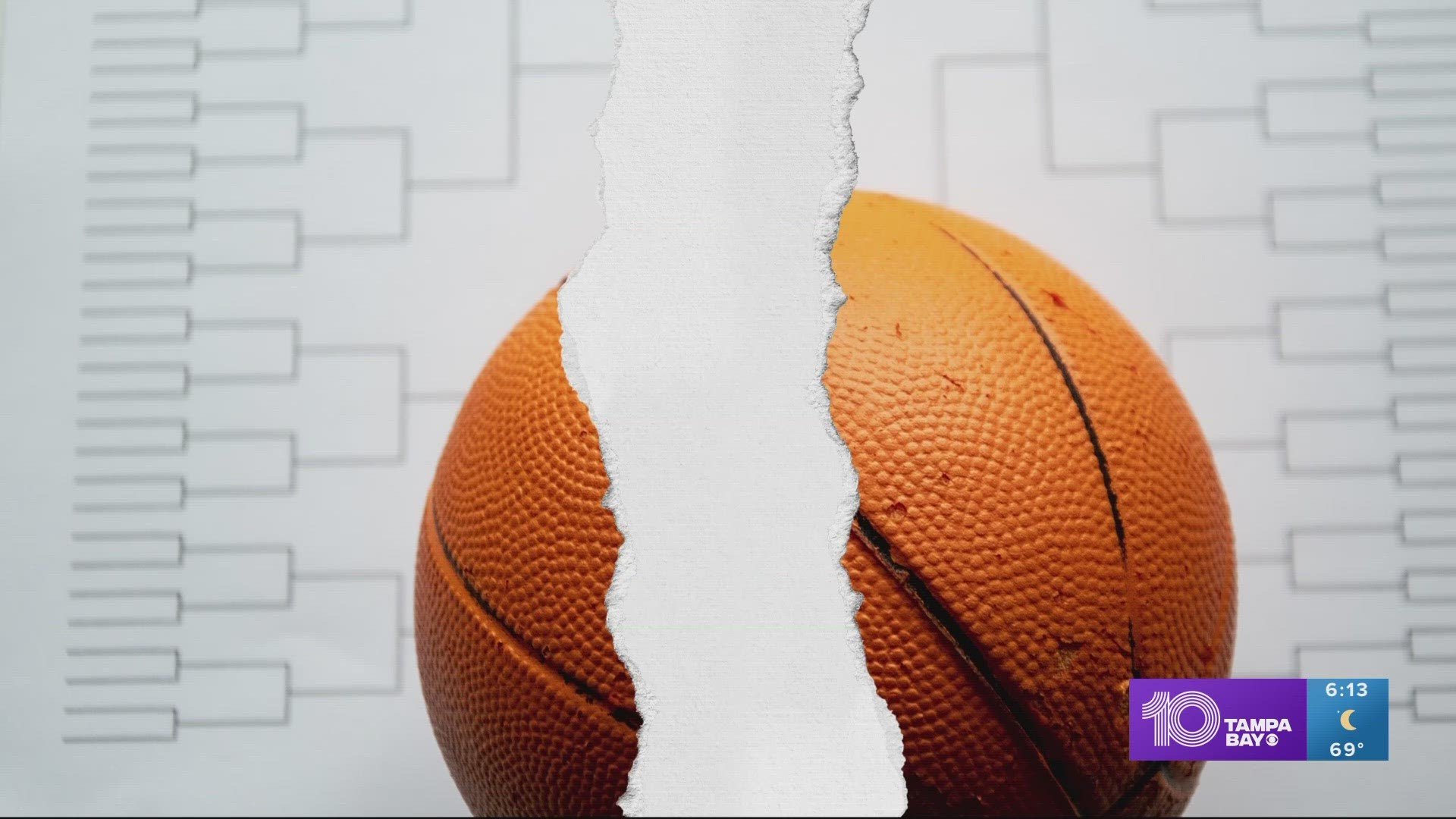ST. PETERSBURG, Fla. — The teams are set, the tournament is underway, and if you’re like millions of college basketball fans you’re watching and hoping your bracket doesn’t get busted.
If you plan to put your money where your mouth is, you’re not alone.
An estimated 68 million Americans plan to wager on March Madness, according to the American Gaming Association — 18 million more than the Super Bowl.
More than half of states now allow some form of legal sports betting.
But here in Florida, could your bracket bets be breaking the law?
THE QUESTION
Is sports betting legal in Florida?
THE SOURCES
- Florida statute
- American Gaming Association
- Daniel Wallach, Florida gaming law and sports betting attorney
THE ANSWER
No, sports betting is not legal in Florida. But legal experts say typical office pools or bets with friends are unlikely ever to be prosecuted.
WHAT WE FOUND
In Florida, it is “unlawful to bet on the result of trial or contest of skill.” State law says, “whoever stakes, bets, or wagers any money or other thing of value upon the result of any trial or contest of skill … commits a felony of the third degree.”
Daniel Wallach, a leading gaming law and sports betting attorney in Florida, says that applies to those ubiquitous March Madness office pools, too.
“Most people don't realize that they’re breaking the law,” Wallach said.
Even as other states have moved to carve out exceptions for social gaming in some form, Florida lawmakers recently upped the ante for violation from a misdemeanor to a felony.
In Florida, sports betting is a complicated business right now.
Weeks after online sports betting was legalized in 2021, a federal judge ruled the compact between the state of Florida and the Seminole Tribe — who had exclusivity in the market — was illegal.
The issue has been tied up in court ever since.
Despite the legal wrangling, Wallach says there is some good news if you still plan to go in on an office pool with a prize or bet a few bucks with friends.
“I don't think in the history of this (Florida) statute there has been a criminal prosecution over any NCAA bracket pool,” Wallach said.
But to ensure you’re not the first, Wallach said it's important to keep your pools limited to coworkers, friends or family, keep any wagers off the internet, and not take a cut of the winnings if you’re the one organizing it.
“There was this classic case of a man in New Jersey who started with an office pool, limited it to two friends, family, coworkers… but then it caught on like wildfire,” Wallach explained. “They had 8,000 participants one year and they paid out over $800,000 so, of course, he was arrested and he went to jail for it.”
So keep it small and simple, he said, and it shouldn’t be an issue.

